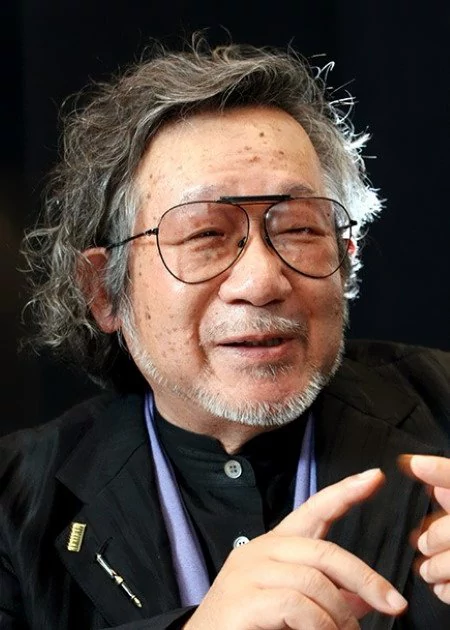
One of Japan's hidden gems. Best known for his often crazy, off the wall and genre-bending productions, Ôbayashi also directed his share of docile but quality blockbuster features. A very talented man who left behind an impressive oeuvre.
Movies
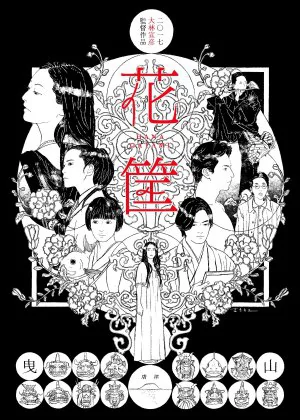
Oddball romance, set right before the start of WWII. What may look like a pretty basic romantic drama on paper is elevated to something completely unique and quirky by director Ôbayashi. It reminded me a little of Suzuki's Pistol Opera, a film not of this era, but so special that it doesn't really matter. It's a shame the film is so long though.
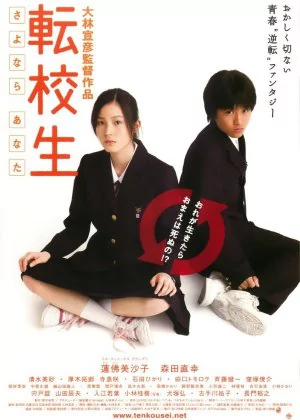
A film with a somewhat similar setup to Shinkai's Your Name, but with a director like Obayashi behind the wheel the film's going to inevitably end up a little different. It's one of Obayashi's more kid-friendly productions, but that doesn't mean it's a simple narrative-driven film, the cinematography is what makes this film stand out. When Kazuo arrives at his new school he is quick to make new friends. One of the people he connects with is Kazumi, but he isn't quite ready for what is going to happen. Out of nowhere the two switch bodies. They are forced to adapt to their new lives, even though their personal feelings for each other greatly complicate things. The performances aren't the best and although there are some interesting twists, the plot's also a bit too cheesy. It's a good thing then that Obayashi goes crazy with his camera and the editing. It's no Hausu of course, but for a film like this, it is a remarkable choice. And one that pays off too. I had plenty of fun with this one, despite the quality being a little uneven.Read all

Obayashi tells the story of Sada, a mysterious Japanese prostitute. And he does so in a typical Obayashi way. When I first saw the film I wasn't all that versed in (Japanese) cinema, so it stood out. Watching it again, that feeling is not as strong anymore, but it's still a strong and accomplished film. It's a dark story that has been featured in other films, but Obayashi's take is one of the more interesting ones. He manages to keep things relatively light, he makes sure the cinematography and performances are distinct and while the runtime is long, it never feels like the film is overstaying its welcome. It lost some of its appeal over the years, but it's still a very cool film and a must for fans of Obayashi.Read all
Bound for the Fields, the Mountains, and the Seacoast
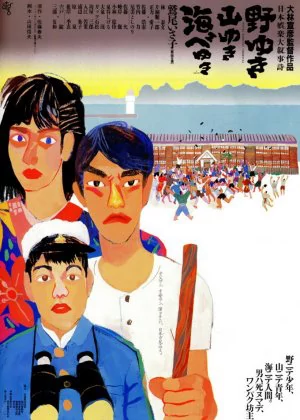
Another great Ôbayashi comedy. It's really unfortunate to see how such a rich and varied oeuvre remained under the radar for so long, especially when Ôbayashi did make several cult films that made the rounds. It's never too late to discover great films though, so I'm glad he's received some renewed attention these past couple of years. Ôbayashi does what he does best. A light rural drama is mixes with quirky comedy and light fantasy elements. It's a fun, lively film that never bores despite it's rather long runtime. The lush black and white cinematography certainly plays a part in that (beware, there's also a color version), but it's really Ôbayashi's splendid direction that ties everything together. Very nice.Read all
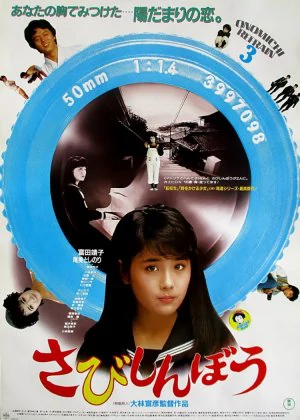
A very sweet and agreeable Ôbayashi. His 80s work is generally a lot more toned down than what he's famous for, usually sprinkling drama with light fantasy elements. Quality varies, but Lonelyheart is one of the better films in this niche, a cute mix of coming-of-age with some supernatural elements. Lonelyheart is a very warm and nostalgic film. The small-town rural community, the yellowish haze draped over the film and lots of minor details that make you reminisce about simpler times. Performances are good too and though a bit long, the film never starts to drag. I liked this one a lot.Read all
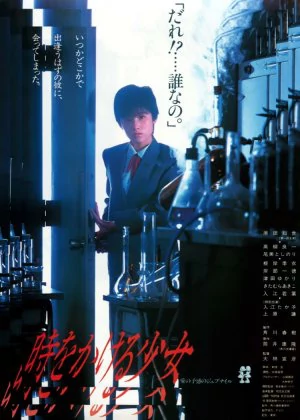
The more Obayashi films I see, the more I realize there are two very distinct sides to the man. He's mostly famous for his zany, weird and over-the-top films, but throughout he's oeuvre he also directed plenty of subdued, more commercially-oriented movies. This is one of those, with just a little Obayashi magic on top to make it stand out. Yoshiyama is on cleanup duty. When she's done cleaning the lab a canister falls and the fumes that get released make her faint. The next day an earthquake hits the town she lives in. But then something weird happens to her, and she travels back a day in time. Knowing what is about to happen, so tries to warn the people she loves. The Little Girl Who Conquered Time is a very gentle, sweet and loveable little film. The sci-fi elements are minimalistic, the drama is light, performances are good and there's a little pre-finale sequence that gives the film that bit of extra flair it needed. Obayashi was a talented man, I'm happy I still have quite a ways to go.Read all
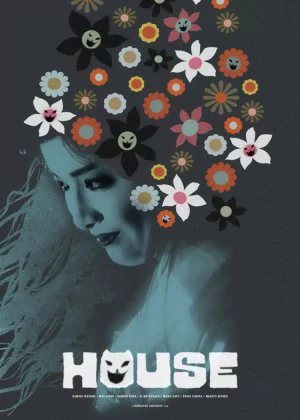
Hausu is the film that made Obayashi's career, especially in the West. He's not all that known here, but most horror fans are at the very least aware of Hausu, Obayashi's madcap horror film. And rightfully so. After a somewhat slow start, the film goes in full overdrive and unleashes a barrage of weirdness you'll be hard-pressed to find outside the realm of Japanese genre cinema. Oshare is looking forward to spending her summer holidays with her father. But when she hears that his new girlfriend is joining the trip she suddenly changes her plans. With a couple of friends, she goes to visit her grandmother's cottage. What she doesn't know is that her grandmother has died and that her house is haunted. The film is full-on Obayashi from start to finish, but the intro is a bit dull regardless. It isn't until the girls arrive at the cottage that all modesty is thrown out of the window. Don't expect a vintage horror film though, there are few scares and little gore, but there are a few scenes that will be etched in your mind for years to come. Rightfully considered to be one of Obayashi's best.Read all
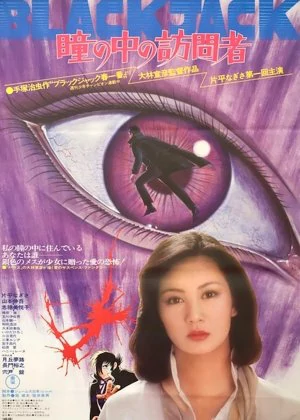
Obayashi does Tezuka's Black Jack. I'm familiar with the character, not so much with the setup of the franchise, but it is safe to say that Obayashi's take is a pretty peculiar one. Black Jack is only a secondary character in this story, a mere catalyst and observer. Regardless the film's origins, Obayashi crafts another fun little genre bender. There's no House-like kookiness here, but it's definitely an odd enough film. A mix of several genres, blending mystery and romance with a dedicated live action anime vibe. There are some memorable moments, the core mystery is fun and the pacing perfect. Fans of Obayashi would do well to seek this one out. Read all
Confession

I was unsure whether to mark this as an anthology, but ultimately I decided against it. Obayashi delivers a bunch of tangentially connected stories and vignettes, but they feel like parts of the same concept, with the essence of the film revealing itself through the sum of these short films. Like Emotion, Confession is a pretty experimental film, with Obayashi trying out different styles and concepts within the same film. He would revisit some of these themes in his later work, but never with quite the same vitality and energy. I like these old Obayashi films, a clear sign of what was to come.Read all
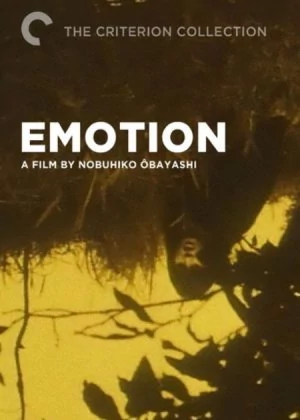
One of Obayashi's early shorts. The recently deceased madcap director clearly didn't miss his start. Emotion is quite experimental, but also just plain weird, a mix not uncommon in Obayashi's films. Where his feature films have narratives that are somewhat easier to follow though, Emotion is bonkers from start to finish. Parts of the film are shot in color, others are monochrome. The editing is frantic, with jump cuts, repetitions, stop-motion and fast intertitles, happily referencing the era of silent film. There's lots of voice-over narration too though, some in English, some in Japanese. The film feels like a baffling fever dream, something I can definitely appreciate. At just under 40 minutes, it's also not too long. The plot is really rather vague and the execution is quite crude, so 90 minutes of this would've been a bit much. At its current length though, Emotion is a fun, quirky, creative and appealing film that is sure to please those seeking out something different. A must for fans of Obayashi's work, a good starting point for all the rest.Read all

A more than respectable and appropriate swan song for Ôbayashi. A film about cinema, a film that feels like vintage Ôbayashi and ultimately may even be about Ôbayashi himself, though that's a tougher call to make for someone who has only seen about 20% of his entire oeuvre so far. The story is all over the place, but that was to be expected. The gist of it is that a group of young people travels back into time while visiting a movie theater. They travel along some of the biggest battlefields in Japanese history, (of course) ending up at Hiroshima. Meanwhile, Ôbayashi gives a couple lessons in film history. Labyrinth of Cinema is way too long and not really of this time, but because this is Ôbayashi's final film and because his style is so iconic, it's exactly the kind of goodbye that befits his legacy. A mad but genius director who will be sorely missed, leaving the world of cinema the way he came in: with an uncompromising bang.Read all
Castings Blossoms to the Sky
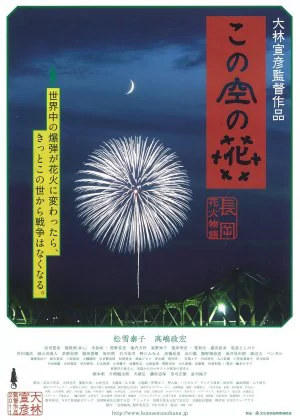
In his final years, Obayashi was greatly invested in WWII and how it influenced and characterized the Japanese identity. The resulting films are quite experimental, long and difficult to capture in a mere couple of sentences. On the other hand, they do start to feel a bit samey and predictable. The peculiar collage effect is interesting and there are some neat visual ideas, others feel a bit outdated and poorly executed. The performances aren't too great either, a more natural approach would've helped the impact of the drama. His films are still pretty fun though, just a bit long and uneven.Read all
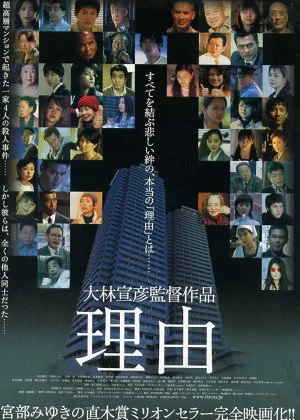
Obayashi dishes out an epic murder mystery. In what seems like an endless amount of chapters, he explores the mysterious murders in that plague a high-rise flat. Obayashi manages to put his unique stamp on the film, but it's still an extremely narrative affair, and with almost three hours on the clock, it did start to drag in some places. The chapter setup works well and between chapters, Obayashi finds time to be a tiny bit more experimental. The cast is splendid, the story mysterious and the pacing pretty decent. The only problem is the runtime, which is excessive. A pretty solid Obayashi though, fans of his work won't be disappointed.Read all
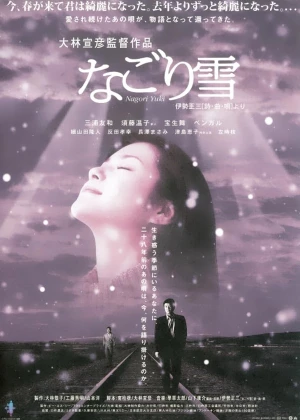
A pleasant but somewhat inconspicuous Obayashi. The story is based on a popular song, but that's just a footnote really. The plot is pretty standard, with a man returning to his hometown after a long time in the city. It's a pretty common setup for Japanese dramas, that follow standard themes and plot structures. The Last Snow isn't an exception. Obayashi paints a pretty picture and the melancholy coupled with the rural setting does its work. The performances are nice, the story is sweet and the drama is effective. But there's not enough here to set it apart from similar films, and looking at Obayashi's oeuvre it's far from his most memorable work. Pleasant filler though.Read all
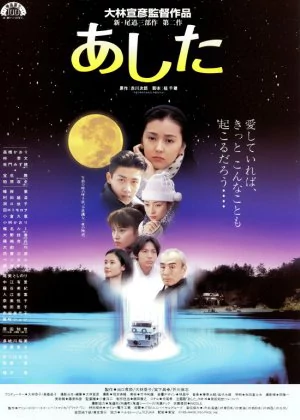
Ôbayashi will forever be known for his weird and madcap fantasy/horror cinema, but during the 90s he made a fair few films that are a lot more toned down. There are clear fantasy elements present in Goodbye for Tomorrow, but they're there to support the drama rather than the other way around. A boat accident casts a dark shadow over a small coastal village. Three months after the accident, friends and families of the deceased get a strange note, asking them to come to a remote island. There they will get one last chance to meet up with the people they lost that fateful day. Even without all the weirdness lighting up his films, Ôbayashi is still a pretty solid director. The first hour in particular is very moody, offering a nice mix of mystery, fantasy and drama. Once everyone is reunited the drama becomes a bit long-winded and heavy-handed, but solid performances, decent cinematography and a solid ending make this a worthwhile film.Read all
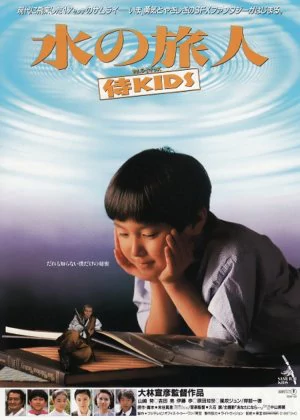
Delve a bit deeper into Ôbayashi's oeuvre and you'll soon find out that he made quite a few films aimed at younger audiences. Samurai Kids is such a film, though luckily it retains Ôbayashi's distinctive style, so if you're a fan of his weirder output you shouldn't worry too much about this being a complete dud. The film follows Satoru, a young kid who finds a miniature samurai along the river banks. The samurai isn't doing too well after being exposed to the polluted river water. Satoru decides to take care of him, but a pesky raven is tailing the samurai and keeping him hidden from his parents also proves to be quite a challenge. Don't expect technical excellence, instead Ôbayashi aims for charm, with some fun stop motion scenes, plenty of odd camera angles and hyperactive camera work. It's a bit weird to see this in a children's film, but it does a good job of setting it apart from its peers. A fun an amusing diversion, though not his best work.Read all
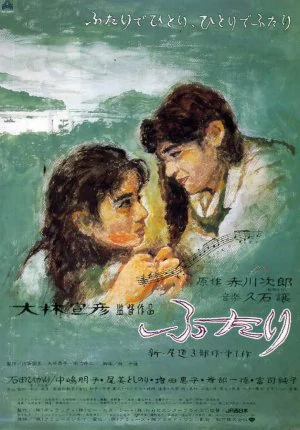
Another fine fantasy/drama from Nobuhiko Ôbayashi. It seems that during the late 80s/early 90s Ôbayashi made a couple of films geared at a younger audience. Luckily he never seemed to have lost his unique touch. Though Chizuko's Younger Sister feels like a kid's film, there's still plenty of trademark Ôbayashi here. The story revolves around Mika, the younger sister of the deceased Chizuko. Mika has always lived in the shadow of her older sis and had a hard time growing up. Until one day, when her sister comes back from the dead to rescue her from a perv. From then on she keeps seeing Chizuko whenever she's struggling. There's a little visual weirdness that is definitely appreciated and the film fares best when Ôbayashi keeps it light and breezy. It gets a bit too dramatic near the end and a little editing to get it closer to the 120-minute mark would've done the film some good, but overall this was a pretty warm, quirky and agreeable film.Read all
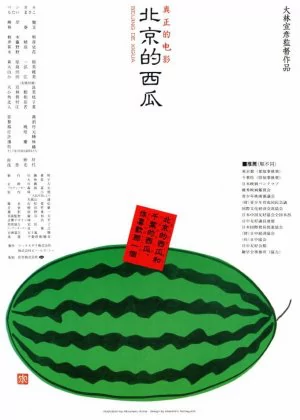
Another decent Ôbayashi. It seems that during the 80s and 90s he made a series of films that were somewhat easier to digest, though in the final half hour of Beijing Watermelon Ôbayashi's quirky side resurfaces. Don't expect anything too crazy, but the fourth wall is breached more than once. The first 90 minutes reminded me a little of films like Tampopo. Beijing Watermelon shows a lively working class community comprised of grumpy characters that end up having a heart of gold and serves it with somewhat moderate stylistic choices. Then Ôbayashi takes a sudden turn and film and reality start to interweave (as the story is based on real life events). It's a bit long maybe, but the interesting finale makes it worth the while.Read all
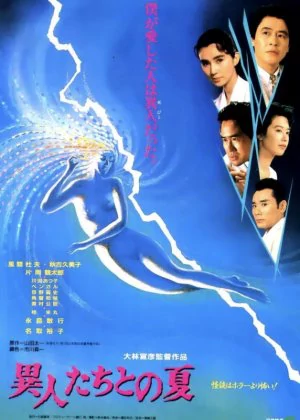
Obayashi loves a good mix of drama and fantasy, a combination of genres he chased quite vigorously during the 80s. The biggest difference here is that the lead is a 40-year-old man, whereas Obayashi usually focuses on younger protagonists. It makes for a slightly different experience. The fantasy elements make the drama a bit more palatable, though the themes itself aren't too original. Performances and styling are solid, but nothing too out of the ordinary. Obayashi does crank the genre elements up a notch during a rather freaky finale, putting his signature on an otherwise fine but somewhat inconspicuous film.Read all
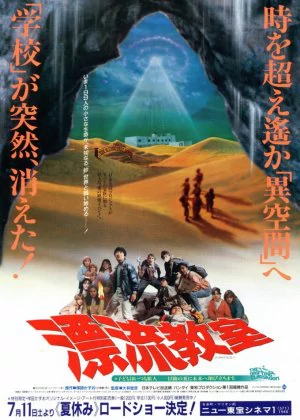
Most people will hit Obayashi's oeuvre thanks to the reputation of Hausu, once you start to dig a little deeper it turns out that his signature is a lot more toned down. The Drifting Classroom is a notable exception. I wasn't really prepared for the onslaught of bafflement, which made it all the more fun. The mix of Japanese and English-speaking actors feels random, the special effects are all over the place (but they're mostly subpar) and a couple of musical intermezzos just add to the overall weirdness. It's not a very technically accomplished film, but Obayashi's vibrant direction, the fantastical elements and somewhat surprising ending add a lot to the appeal. Fun.Read all
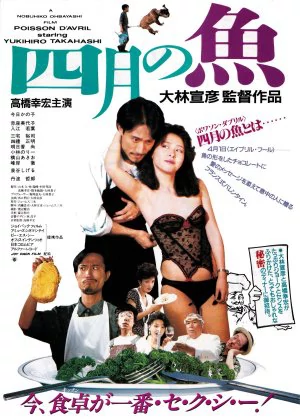
A very quirky and outspoken comedy. It might help to read up a bit more about this film, as I never really got a handle on the vibe Obayashi was going for. There are so many French references that this might be a proper ode, but it could just as well be a parody of the arty-farty. The film offers a somewhat weird mix of situational comedy and slapstick, sprinkled with a few typical Obayashi details. It's a bit messy and definitely chaotic, but I also appreciated the madness and the uniqueness of April Fish. Not his best film, but fans of the director are sure to have a good time.Read all
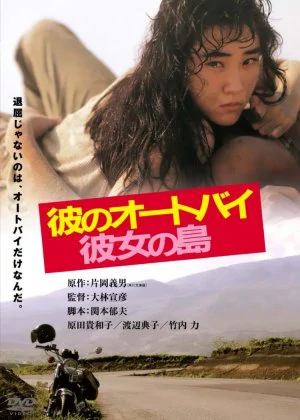
Obayashi goes full in on this youthful romance. After a short introduction in the city, he moves his film to the countryside and serves up a very idyllic, sweet and explosive romance. Fans of Hausu may be surprised, but dig deeper into the man's oeuvre and you'll find he made plenty of softer youth dramas. I'm not entirely sure if the alternations between color and sepia made much sense here, but at least the cinematography was pretty impressive. Performances are fine, the energy of the film is great and there are a few memorable moments, the soundtracks pretty cheesy though and the film does have some pacing issues. But if you love Obayashi's work, it's definitely worth checking out.Read all
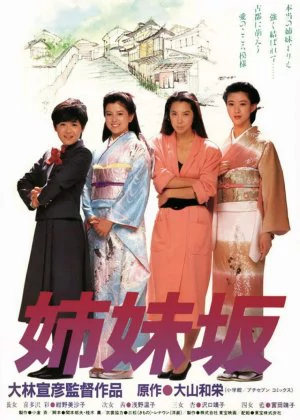
A sweet, little film that made me think of Koreeda's lighter dramas more than once, except that Ôbayashi's style is a lot more outgoing. Four Sisters may not be very slice-of-life or going for overt realism, the atmosphere is very cozy and though the drama can get a little heavy-handed, the film itself never drowns in sentiment. Performances are solid, the cinematography is pleasant (with some truly standout shots here and there) and the score is appropriate. Not everything works equally well (the romances feel a bit obligatory) and it's nothing you haven't seen before, but if you're looking for a fine Japanese drama with minor Ôbayashi touches, this one won't disappoint.Read all
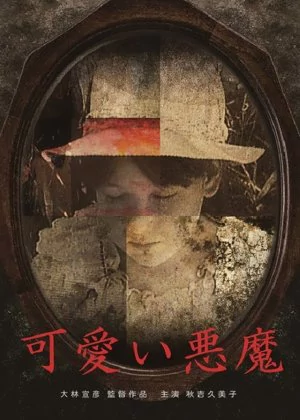
I didn't expect too much from this Obayashi, TV films are rarely a showcase for a director's talents, but I'm quite impressed with the result. Cute Devil's TV roots are noticeable, at the same time this is unmistakably an Obayashi film. Bold, expressive and overwhelmingly cheesy, but also very effective. Most "demon child" films opt for boys, Obayashi takes a cute, little Japanese girl and has her murder all who get in her way. It's a neat twist that pays off surprisingly well. It's almost impossible to guide child actors into becoming mean, evil beings (which is where most of these films fail), it's much easier to have them be charming little nuggets that do some killing on the side. While not as outright crazy as House, Obayashi makes excellent use of the soundtrack and cinematography to create a vibrant yet disturbing atmosphere. The film could definitely benefit from a thorough restoration, but for a made-for-TV production this looked very solid. A fun and amusing horror film, which was more than I expected to find.Read all
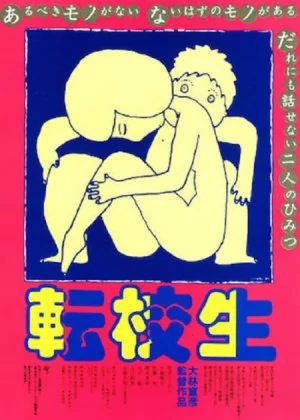
Think Shinkai's Your Name, only without the more fantastical bits. A sweet coming of age story about two kids who switch bodies. It's a typical Ôbayashi film, set in a small, charming port town, featuring the usual kids banter and coming of age drama, without overcomplicating things too much. The two lead actors do a great job, the light tone of the drama is pleasant, and the setting is very idyllic. Ôbayashi's visual playfulness is kept to a minimum, though there are a few moments where he couldn't help himself. Not a very remarkable or memorable film, but a sweet and enjoyable bit of filler that works well within his oeuvre.Read all
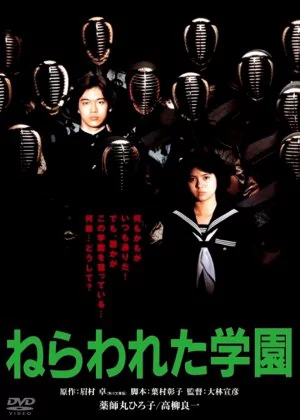
Another Ôbayashi that mixes fantasy with coming of age drama. He made quite a few of these films and while none are true masterpieces, they are sure to entertain. The finale in particular is vintage Ôbayashi madness, it's just a shame that the rest of it isn't all that special. Performances are decent, and the fantasy elements are interesting enough. It takes a while before the film gets up to steam though, and it isn't until the finale that Ôbayashi goes full out. The visual effects may not be very advanced, but they're very charming. Not Ôbayashi's best, but an entertaining little diversion nonetheless.Read all
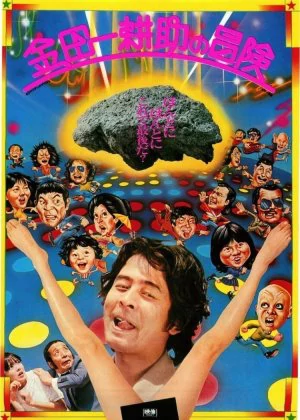
Kosuke Kindaichi is one of the most famous detectives in Japan, made popular by the films of Kon Ichikawa (but originating from a long line of novels). Madcap director Nobuhiko Ôbayashi also had a swing at it and delivers what could've been a fun live action Lupin film, only with a different set of characters. I'm not familiar with the original series so it's difficult to compare, but the elements that stick out bear the clear signature of Ôbayashi. The tone is extremely light, even bordering on outright comedy, there are some truly wacky moments and the hand of Ôbayashi is always present. Probably more fun for people already familiar with the series, but still worth a watch even if you've never heard of Kindaichi before.Read all
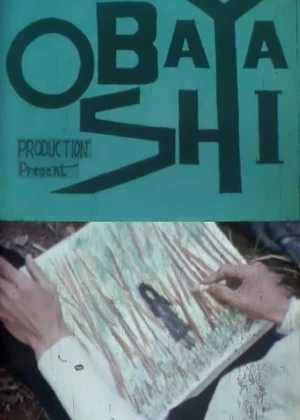
One of Obayashi's earliest films. It's obvious he was still experimenting and searching for his identity here, but that has a charm of its own. This early short feature is an ode to silent cinema, which I guess was pretty convenient for a young director with limited means at his disposal. It's cute to see a young Obayashi, the grainy, fuzzy film stock has a fitting charm and while the setup is pretty simple, the short runtime keeps the film from losing steam. It's far from Obayashi's most memorable film, but it's a cute little experiment that foreshadows an impressive career. Good fun.Read all
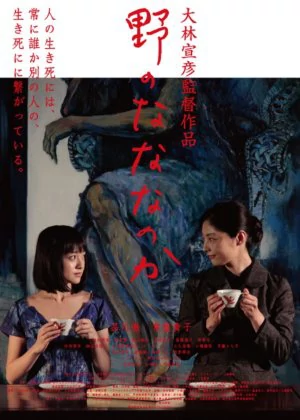
One of Ôbayashi's later undertakings in his career. Seven Weeks is a very ambitious film (clocking in at nearly 3 hours, better make sure you're ready for it), but the mix of serious drama and Ôbayashi's kooky fakeness didn't really work for me this time around. There are some inspired moments here, but as a whole it didn't quite work. There are some pretty shots here, sadly the characters stick out like sore thumbs, often completely breaking the illusion. Ôbayashi has some neat directorial tricks up his sleeve, but they break up the drama and take away from the more serious moments. It doesn't often happen, but it seems I prefer Ôbayashi's older work.Read all
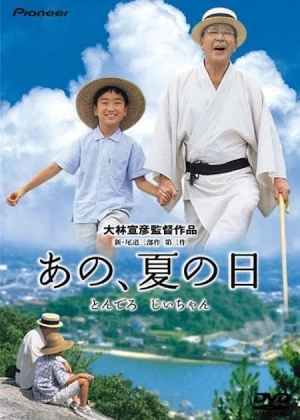
A typical 90s Obayashi film. The film is aimed squarely at a younger audience, but it's charming enough for older audiences. It's about a young boy and his grandfather spending an epic summer in a small Japanese rural town, where the line between folklore and reality is often indistinguishable. This is one of those films where you might want to book a ticket to Japan once the credits start rolling. The performances are a bit middling though and the cheesy effects are vintage Obayashi. But it's a sweet film with its heart in the right place. Not quite as fun or adventurous as some of his other work, but fun filler regardless.Read all
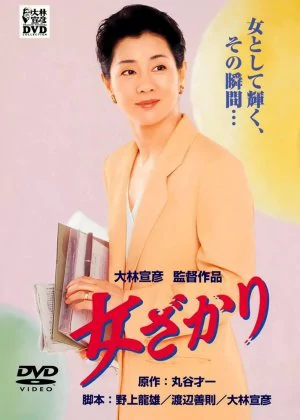
A somewhat lesser Obayashi, also the second newspaper drama I've seen in two days. Purely coincidental, as I don't really read any plot info up front. What I'm missing here is Obayashi's quirkier and more overtly stylistic elements. There are flashes of that, but not enough to make it a recognizable film. Obayashi does make the film a bit more dynamic than the genre requires, and the performances are pretty solid. The plot's a bit all over the place and the theme isn't that exciting, at least not a good three decades later. It's not a bad film, but looking at Obayashi's other work, it could've used a little extra spice.Read all
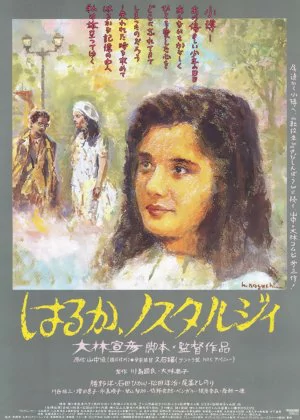
One of Ôbayashi's lesser films, coincidentally also one of his longer films. The film is a rather predictable drama that wallows in nostalgia (hence the title), but brings very little of Ôbayashi's trademark elements to set itself apart from its peers. The result was a bit too long and indistinct for me. The setting is nice, the performances are decent. There are one or two more typical Ôbayashi moments, but for the most part it's a relatively basic drama that deals with predictable topics to which Ôbayashi can't all that much. It's not a terrible film, but I definitely prefer Ôbayashi's more unique films.Read all
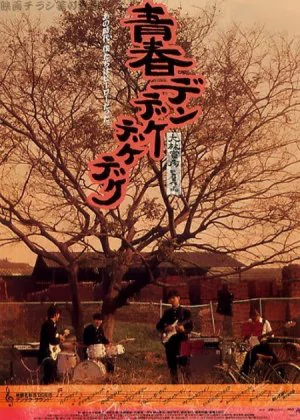
Rock. It seems to be cinema's ultimate (yet lazy) go-to source for a bit of rebellion, even though it's now very much a last century thing (the rebellious part that is). I don't have any affinity with the genre, so these films tend to be wasted on me, even when it's a director like Ôbayashi handling the film. It was fun to see a very young Tadanobu Asano in one of his first big roles and the drama isn't that bad. There are small glimpses of Ôbayashi's wilder side too, but they are few and far between. It's just all very basic and with no enthusiasm for the music on display it does come off as one of Ôbayashi's weaker films.Read all
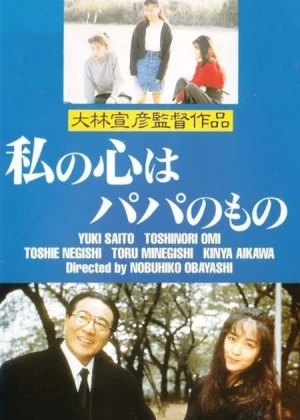
A TV project that was restructured into a feature film. The project's roots are very obvious, but thanks to Obayashi's spirited direction it's more than just a shortened TV series. At its core, My Heart Belongs to Daddy is a pretty simple drama, but there were enough quirky ideas to keep me engaged. The image quality is paltry and the drama is rather basic, but Obayashi has some fun tricks up his sleeve. He never takes things too seriously and injects some narrative tricks to keep things interesting. It's far from his best work, but it's easy filler that fits in well with the rest of his oeuvre.Read all
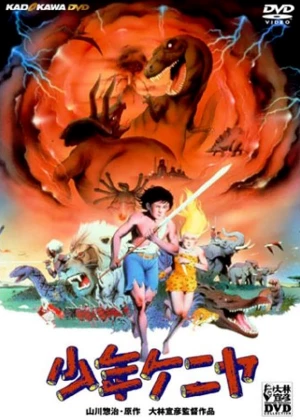
Obayashi's first and only foray into anime. That alone makes Kenya Boy worth watching, even though the film itself is pretty messy and not up to par with other big productions of its time. Obayashi does manage to put his stamp on the film, so it's definitely not a generic or throwaway anime feature. The quality of the animation is a little wonky, but the art style is interesting and Obayashi has some nice tricks up his sleeve. What starts as a pretty straightforward adventure spirals into an epic, madcap fantasy that made the final a lot easier to stomach. Not a great film, but surely an oddity that deserves a little extra attention.Read all
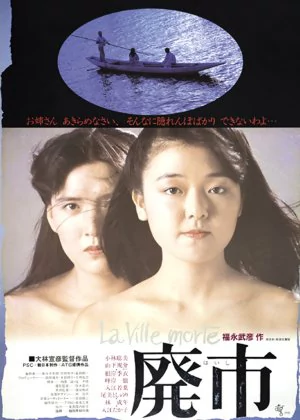
A surprisingly straightforward drama from Ôbayashi, set in Yanagawa (Japan's famous canal city - its demise was also captured in a documentary by Isao Takahata a few years later). While Ôbayashi tries to add some mystery and intrigue, it doesn't really stick and the result is a bit too cheesy for its own good. Performances are decent, but the intrigue simply doesn't work. Ôbayashi's style isn't very suited for serious films and when he tries to get poetic it just comes off silly. There are moments where his talent shines through and its certainly not a terrible film, just not on the same level as his other work.Read all
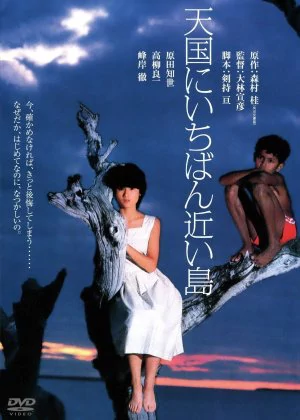
Not really the kind of film I'd expected from Obayashi. The Island Closest to Heaven is a rather chirpy and upbeat drama, a film that sometimes feels like a travel documentary/advertisement. Most of the film is set in New Caledonia, a group of French islands to the east of Australia which prove to be quite photogenic. Keiko, a young woman, travels to the islands all by herself. It's the first big journey she undertakes on her own, as she's looking for a little white island that is supposedly the place where God descends if you want to talk to him. Keiko is part of a travel group, but she quickly separates from them and ventures off to explore on her own. New Caledonia is a pretty pristine and idyllic place, Obayashi makes excellent use of the natural beauty to give his film some extra flair. The performances are rather weak though, the drama can get a little saccharine and Keiko's quest feels a little random. But most importantly, non of the Obayashi quirk that makes his film stand out. It's not bad, but it started to feel a little dated.Read all
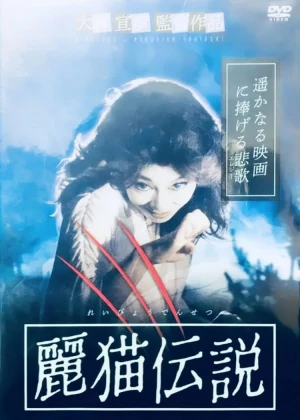
An older TV movie from Obayashi. It's obvious the budget nor the time was there to make a full-fledged Obayashi experience, but he did a pretty decent job considering these limitations. It's never going to be one of his all-time classics, but fans of the director will no doubt find something to appreciate here. It's an ambitious film, which many parallels to draw to other films and genres, but in the end its TV roots keep it from achieving anything too out of the ordinary. The meta element is fun, there are some funky visual experiments and the pacing is slick, I just wish Obayashi had more time and resources to do justice to the material.Read all
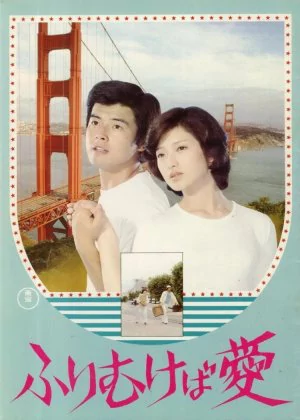
A very simple romance from the hands of Obayashi. There are some minor quirky details, but people who got to know Obayashi through his wilder films might be surprised how straightforward Take Me Away truly is. The romantic back and forth between the two leads is the main focus of the film, and that's about it, really. The cheesy 70s soundtrack and somewhat cringy US setting aren't too appealing, the meant-to-be lovers who keep missing their window of opportunity setup isn't too original either. The lead characters are charming though, and some interesting visual details do help to elevate the film, if only a little. Far from Obayashi's best, but not too bad.Read all
Making of Dreams: A Movie Conversation between Akira Kurosawa and Nobuhiko Obayashi
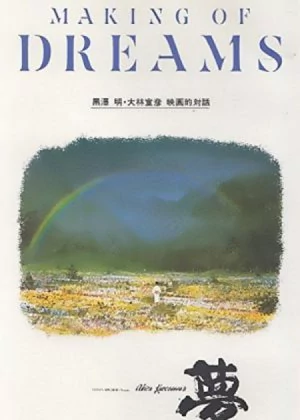
Obayashi directs Kurosawa's Dream's making of. And he goes a bit beyond, by adding several interviews with the director. Those were by far the most interesting parts for me. I really disliked Dreams, and I'm not a big fan of Kurosawa in general, but the conversations between these two men were pretty nice. Obayashi is clearly a fan of Kurosawa, and it's nice to see him ask more personal questions, rather than the usual nonsense journalists come up with. These inserts break up the documentary and kept me watching, even when there was way too much filler for my taste. One for fans of Kurosawa and Dreams, others might not find too much here.Read all